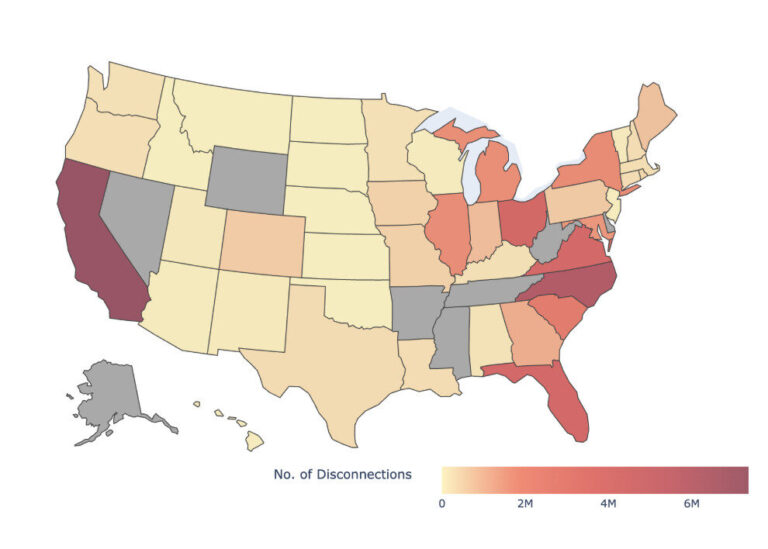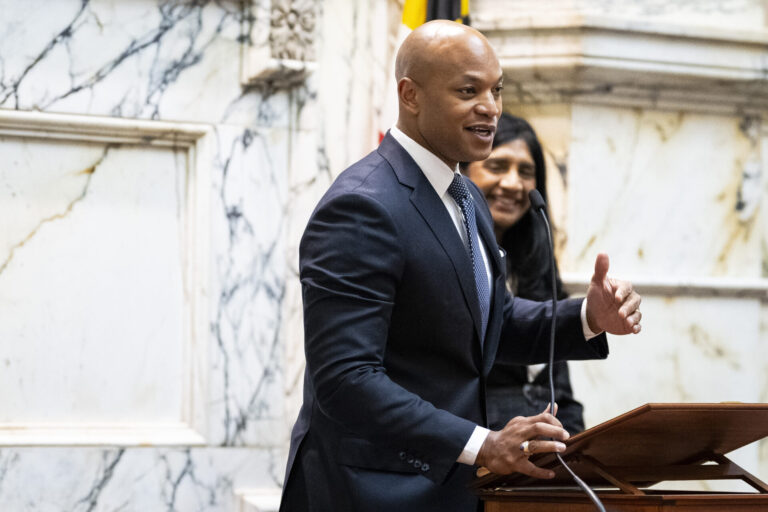APS uses teachers in ads against Prop 127, but has history of funding anti-public education organizations

Arizona Public Service is pushing a new argument in its campaign to convince the state’s voters to reject a ballot initiative that would increase the state’s use of renewable energy: it’s bad for teachers.
In advertisements, yard signs and tweets, APS and its proxies have begun aggressively claiming that Proposition 127 would hurt teachers and schools. The ballot initiative would force APS and other investor-owned utilities in the state to generate 50% of their electricity from renewable sources like wind and solar energy by 2030.
One of APS’ latest ads features a teacher saying that she supports clean energy before going on to echo APS talking points that Prop 127 will drive up costs.
Some of the campaign’s yard signs read simply: “No on 127. Protect Arizona Schools” with no reference to electricity at all. Other tweets from the APS campaign say things like “Protect public education. Protect teachers.”
https://t.co/uOZ6w512Pe pic.twitter.com/HeZTglkDXj
— Maricopa County GOP (@MaricopaGOP) September 8, 2018
At a time when the “#InvestInEd” protests for higher pay and greater funding of public education have generated sympathy and dominated Arizona’s political landscape, it’s perhaps not surprising that APS is trying to paint itself as an ally to teachers.
The Arizona Education Association (AEA) has endorsed Prop 127, arguing the exact opposite of APS: that the initiative will help lower school systems’ utility bills moving forward, save funds for educators, and protect children’s health.
Studies do not support APS’ arguments about rates
APS bases its argument that Prop 127 would harm schools by causing electricity rates to increase, often citing a study from Arizona State University that arrived at that conclusion – APS financed that study and provided the data and assumptions for it.
Advocates of Prop 127 push back with a study from the Natural Resources Defense Council which says that the measure would save Arizonans more than $4 billion.
More broadly, independent studies on the effects of renewable standards on rates do not support APS’ claims that rates would double if Prop 127 passes. Academic studies and analyses from Department of Energy labs have generally shown that renewable portfolio standards like Prop 127 do not cause rates to significantly increase. Studies that counted the benefits of renewable standards have found that they outweighed any costs.
If teachers or #InvestInEd advocates want to determine who has their interests at heart without wading through Department of Energy studies, they can examine APS’ history when it comes to the politics of public education. The monopoly utility has a track record of providing support to three entities who have done the most to undermine the #InvestInEd movement in Arizona.
APS is a top funder and ally of The Arizona Chamber of Commerce, the group whose lawsuit kicked #InvestInEd off the ballot
Arizona teachers, along with the AEA, spent the spring and summer collecting enough signatures to put their “Invest in Ed” measure on the ballot: the initiative would have raised taxes on the wealthy to fund $690 million per year toward public education.
The teachers and their supporters collected the requisite signatures, but they faced a lawsuit from the Arizona Chamber of Commerce and Industry, Arizona’s largest pro-business lobby group, which aggressively opposed the measure. The Chamber won on August 29, when it convinced a majority of the Arizona Supreme Court that the ballot language was not clearly written. The decision overturned a lower court’s decision and kicked the measure off of the November ballot.
The ruling drew outrage from education advocates toward the Chamber, including some protests at the group’s headquarters.
We have to be clear about who took down #InvestinEd. It was Arizona Chamber of Commerce. It’s sick when corporations have teacher supplies drives while starving public education. Shame on all who took part in killing education.
— Eva Putzova (@EvaPutzova) August 30, 2018
Teachers and supporters are starting to gather outside the AZ Chamber of Commerce and Industry’s office in Phoenix. They’re upset with the Chamber’s opposition to the Invest in Ed initiative which has been blocked from being on the November ballot. pic.twitter.com/MJJFAh2vrT
— Griselda Zetino (@GriseldaZetino) September 5, 2018
APS has long worked hand-in-hand with the Arizona Chamber to coordinate their political agenda and contributions.
The utility is one of only two companies that the Chamber lists as “Champion-level” members, its highest level of membership, meaning that APS is almost certainly the Chamber’s top or second-biggest funder. (The other is Cox Communications.)
APS’ charitable arm, the APS Foundation, also gave the Arizona Chamber’s charitable arm, The Arizona Chamber Foundation, $100,000 in 2016, according to the APS Foundation’s most recent tax forms.
APS’ top lobbyist, Jessica Pacheco, is also the Finance Chair for the Arizona Chamber, and the Chair of the Arizona Chamber Foundation.
APS Funded the Arizona Education Project, a public relations campaign praising Gov. Ducey’s education record to undermine teachers’ calls for increased funding
APS might claim that its funding of the Arizona Chamber is incidental to the education issue, but the utility has weighed into public education issues directly as well. The company provided an unknown amount of funding for the “Arizona Education Project” (AEP), a non-profit organization founded in 2018 that ran $1 million in ads praising Gov. Ducey for the performance of Arizona’s public schools.
The AEP was widely regarded as a public relations effort to protect the teachers’ demands for greater pay from becoming a political liability for Ducey, whose administration had consistently cut teacher funding. Don Brandt, the CEO of APS’ parent company, Pinnacle West Capital, declined to answer questions about the monopoly’s funding of the effort. But an APS spokeswoman said that “APS is a long-standing supporter of the education system in our state because it is fundamental to Arizona’s future and economy. The Arizona Education Project is an effort to have a dialogue about public education from an optimistic point of view…”
“It’s a slap in the face for us to sit and watch those,” Noah Karvelis, a music teacher and organizer of Arizona Educators United, said of the AEP commercials.
The Arizona Education Project’s spokesperson is Matt Benson, who runs the Veridus public relations and lobbying group. Benson sits at the nexus of the anti-#InvestInEd efforts and APS’ campaign to defeat Prop 127. He directs Arizonans for Affordable Electricity, which is APS’ main vehicle to kill the clean energy initiative, as well as Arizonans for Sustainable Energy Policy, APS’ proxy group which will seek to influence Arizona Corporation Commission elections.
APS is a member of ALEC, which backed legislation, passed in Arizona, to divert public school funds to private school vouchers
In 2017, the Arizona legislature passed, and Gov. Ducey signed, SB 1431, which extended school vouchers to all of Arizona’s students with money that had been earmarked for public education.
SB 1431 was based on a “model bill,” pushed by the American Legislative Exchange Council (ALEC), an organization which allows corporations to write model laws for right-wing state legislators. APS is an active member of ALEC, having quietly rejoined the group in 2013 after publicly leaving the year before. The lead sponsor of the ALEC model legislation was former Arizona State Senator Debbie Lesko, a top recipient of APS campaign funds.
Three APS lobbyists – Chad Guzman, Katie Prendergast, and Rod Ross – attended ALEC’s 2017 meeting, according to an attendance list reported by Documented, a watchdog group that investigates corporate influence. Guzman says he’s a Democrat in social media posts. Glenn Hamer, the CEO of the Arizona Chamber, also attended that ALEC meeting.
While the Arizona Chamber succeeded in booting the #InvestInEd effort off the ballot, Arizona voters will have a chance to weigh in on the ALEC-styled SB 1431 this November. Prop 305 will be on the ballot and it will determine whether the private school voucher expansion law lives or dies – a “no” vote results in the law being overturned, while a “yes” vote would uphold it.



